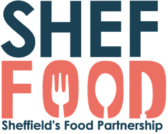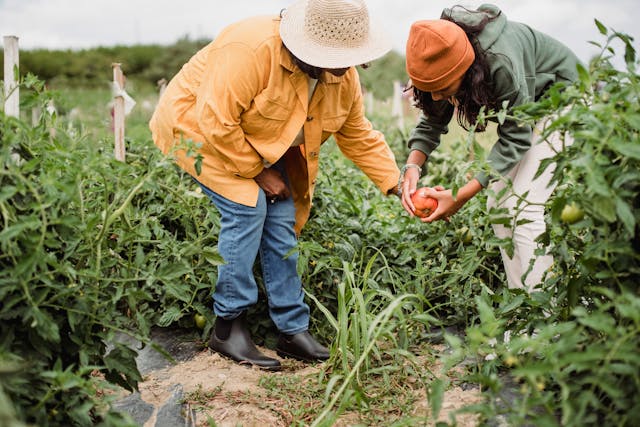Local community organisations in Sheffield are playing a significant role in providing healthy and sustainable food to people living in the city. From social eating spaces to pay-what-you-can cafes, there’s more going on in the city with food every day. This is not just about nourishing people, but also about building community resilience by supporting local economies. To further this cause, the University of Sheffield, along with the Centre for Local Economic Strategies (CLES) and Fork – Food in Place Ltd, are starting a new research project this month. The project aims to explore how collaborating on public procurement can promote healthy and sustainable food supplies in Sheffield and other places. Such research projects often go unnoticed by the public, but given the possible impact, it’s important to highlight how this project and its findings could benefit Sheffield folk.
This research project is focused on creating local economies that work for everyone, regardless of their background or circumstances. By working to improve policies and practices both in the UK and around the world, the project hopes to change the conversation about how we can support local communities and promote economic growth without sacrificing health outcomes or sustainable goals.
CLES’s team of experts are going to look closely at the challenges and opportunities that exist in local economies like Sheffield and what’s stopping public sector institutions from utilising more local produce. By working together and sharing ideas, they hope to come up with practical solutions that will help communities make positive changes.
This project has many different parts and involves working closely with six important public organisations in Sheffield, such as schools, local government, and hospitals. They will all work together to look at how they buy food and try to spend more money on food that comes from local sources. In addition, the project will work with local producers and evaluate their ability to meet the increased demand from the public procurement sector.
This approach makes sure that the project takes into account the opinions and needs of local producers as well as the organisations they could supply, creating a roadmap which works for all.
This project aims to ensure that people in Sheffield have access to locally sourced, sustainable food. To achieve this, the project will develop and test new ways to collect and distribute food. By doing this, we hope to make it easier for people to get fresh, healthy food, support local farmers and improve our local institutions’ offerings.
But why is collaborative public procurement so vital, you may ask? Well, the benefits are extensive. By embracing local producers and sustainable practices, public sector procurement becomes a powerful engine for economic growth. It injects capital directly into the local economy, fostering entrepreneurship and job creation.
Moreover, prioritising healthy, sustainable food options promotes the well-being of citizens, combating diet-related illnesses and enhancing overall quality of life. Sheffield has higher rates of obesity, tooth decay and food insecurity than the UK averages.
Another benefit is the impact local procurement would have on our sustainability goals. From reducing carbon footprints through reduced transport miles to preserving local biodiversity with wildlife-friendly farming, the ripple effects of sustainable procurement extend far beyond the dinner table, contributing to a healthier planet for future generations. We’ve already got a growing sector of sustainable food producers in the city, such as Sheffield Country Market, Moss Valley Market Gardens, Sheffield Organic Growers and Regather Co-operative. Now is the time to invest in even more urban farming and local horticulture.
Building community resilience lies at the heart of this initiative. The project cultivates a sense of interconnectedness and mutual support within Sheffield’s vibrant communities by forging strong partnerships between public agencies and local producers. Our Cow Molly, who produces milk and dairy products, supplying both of Sheffield’s universities, is an excellent example of how Sheffield can easily work with local producers making fantastic products and provide mutual benefits to everyone involved.
On a broader scale, this project aligns seamlessly with the recommendations laid out in the National Food Strategy. As the UK charts a course towards a more resilient, equitable food system, initiatives like these play a pivotal role in driving transformative change. Furthermore, the new Procurement Bill is a law that will encourage the government to consider more than just the price when buying things. It will also look at things like how the purchase will benefit society and the environment. The government will also try to support small businesses when buying things. The hope for this new law is that it will make the process of buying things more open and fair for everyone, something the CLES project will help provide a framework for.
Of course, there are many challenges and barriers to this journey towards sustainable procurement. From capacity constraints among smaller suppliers to budgetary limitations for public sector buyers, navigating these hurdles requires creativity, collaboration, and unwavering commitment. Nevertheless, this project and its findings will be one part of the solution to this challenging puzzle.
Through collaborative public procurement, this research project holds the promise of not just transforming food systems but reshaping the very fabric of local economies. In the quest for healthier, more sustainable food supplies, collaboration isn’t just the key; it’s the whole recipe for success.
—

